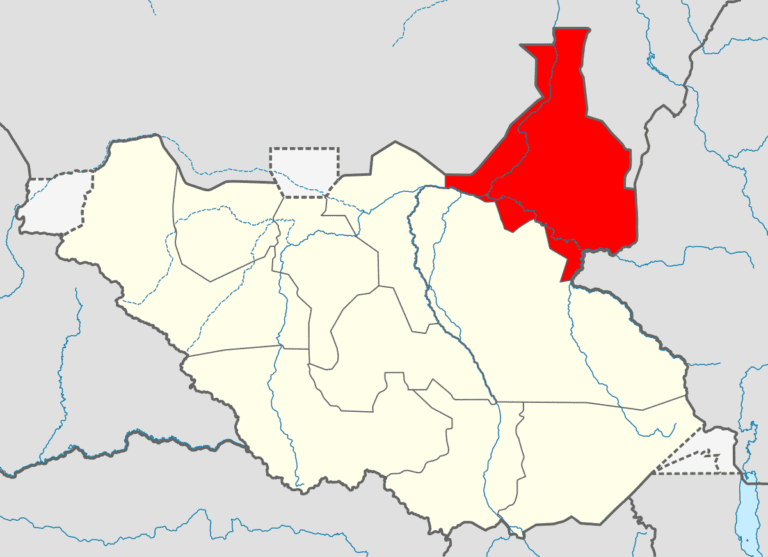South Sudanese children separated from their parents during deportation from Sudan’s capital Khartoum have been reunited with their families in South Sudan, according to media reports.
At least 71 children have been reunited with their families in the town of Lenk in South Sudan’s Upper Nile state, Radio Tamazzi reported. Upper Nile state officials coordinated with Sudanese officials to carry out the unification.
Children were left behind when police expelled mothers in a crackdown across Khartoum because the government considers Christian-majority South Sudanese a threat to Islam and security, but most of the deported women had lived in the country for decades.
Church leaders told Morning Star News that arrests have continued in the crackdown.
“Of course, arrests and repressions continue in various parts of the capital,” said one church leader, whose name is withheld for security reasons.
The move comes after human rights and civil society organizations criticized the Sudanese government for deporting more than 100 South Sudanese women without due process or legal aid earlier this month.
Civil society groups welcomed the move and called on Sudan to respect human rights and comply with international law when returning refugees to South Sudan.
“We would like to thank the Lenk and Sudanese authorities for making this possible,” Solana Jeremiah, head of civil society organizations in Upper Nile state, told Radio Tamazzi. “This time, both the people and the government should respect the law.”
Many South Sudanese remained in Sudan even after it became an independent state on July 9, 2011, following a civil war dating back to 1983. According to the Joshua Project, 56 percent of South Sudan’s population is Christian. 34.1 percent of the population practices their traditional religion, and 9.4 percent are Muslim.
According to the Joshua Project, Sudan is 93% Muslim, with 4.3% of the population practicing traditional ethnic religions and 2.3% Christians.
The deportation took place during the civil war that broke out in April 2023 between the militia Rapid Support Forces (RSF) and the Sudanese Armed Forces (SAF).
RSF and SAF are both Islamist groups that attack displaced Christians for supporting the other country’s fighters.
The conflict between RSF and SAF, which shared military rule in Sudan after the October 2021 coup, has terrorized civilians in Khartoum and elsewhere, killing tens of thousands of people and displacing more than 11.9 million people inside and outside Sudan’s borders, according to the United Nations Commissioner for Human Rights (UNCHR).
SAF General Abdel Fattah al-Burhan and then-vice president and RSF leader Mohamed Hamdan Dagalo were in power when civilian parties agreed in March 2023 on a framework to re-establish a democratic transition the following month, but disagreements over the structure of the military stalled final approval.
Mr. Burhan aimed to bring the RSF, a militia with roots in the Janjaweed militia that helped quell former strongman Bashir’s rebels, under regular military control within two years, while Mr. Dagoro intended to accept integration within 10 years.
Although both military leaders have Islamist backgrounds, they seek to present themselves to the international community as champions of religious freedom and democracy.
Open Doors’ 2025 World Watch List (WWL) ranks Sudan fifth among the 50 most difficult countries to become a Christian, down from eighth the previous year. Sudan fell out of the top 10 of the WWL list for the first time in six years when it was ranked 13th for the first time in 2021.
After two years of progress in religious freedom in Sudan since the fall of Bashir’s Islamic dictatorship in 2019, the military coup on October 25, 2021 brought back the specter of state-sponsored persecution. After Bashir was ousted from power after 30 years in April 2019, the Interim Civil-Military Government succeeded in revoking some Sharia (Islamic law) provisions. The law prohibited labeling any religious group as “infidel” and effectively repealed the apostasy law, which made leaving Islam punishable by death.
The October 25, 2021 coup left Christians in Sudan concerned that the most repressive and harsh aspects of Islamic law would be reinstated.
In 2019, the U.S. State Department removed Sudan from its list of countries of particular concern (CPC) that commit or tolerate “systematic, persistent, and egregious violations of religious freedom,” and elevated it to its watch list. Sudan was designated as a CPC from 1999 to 2018.
In December 2020, the State Department removed Sudan from its special watch list.
